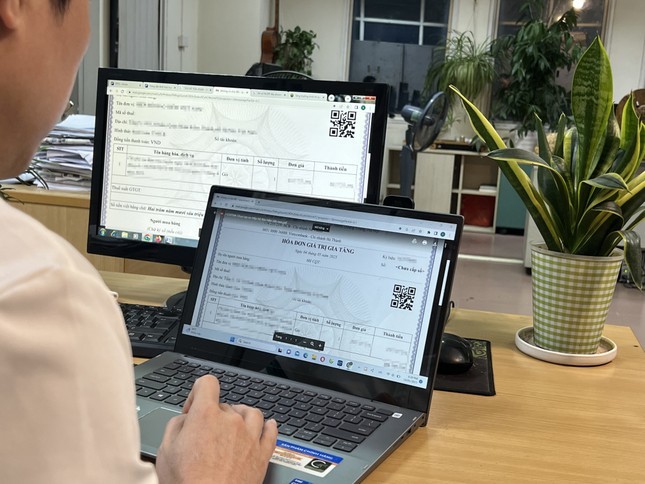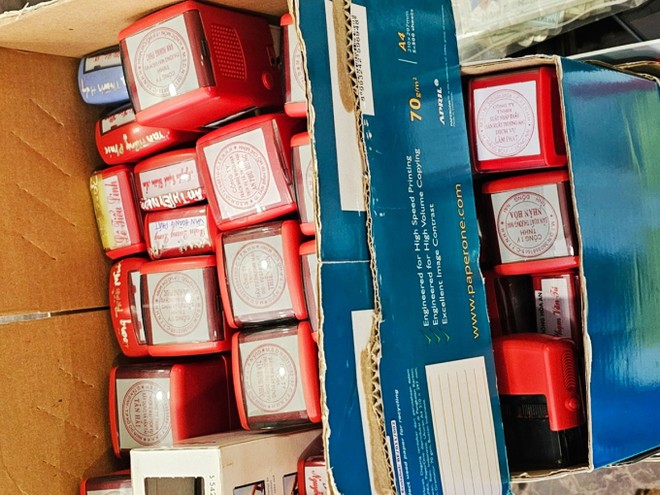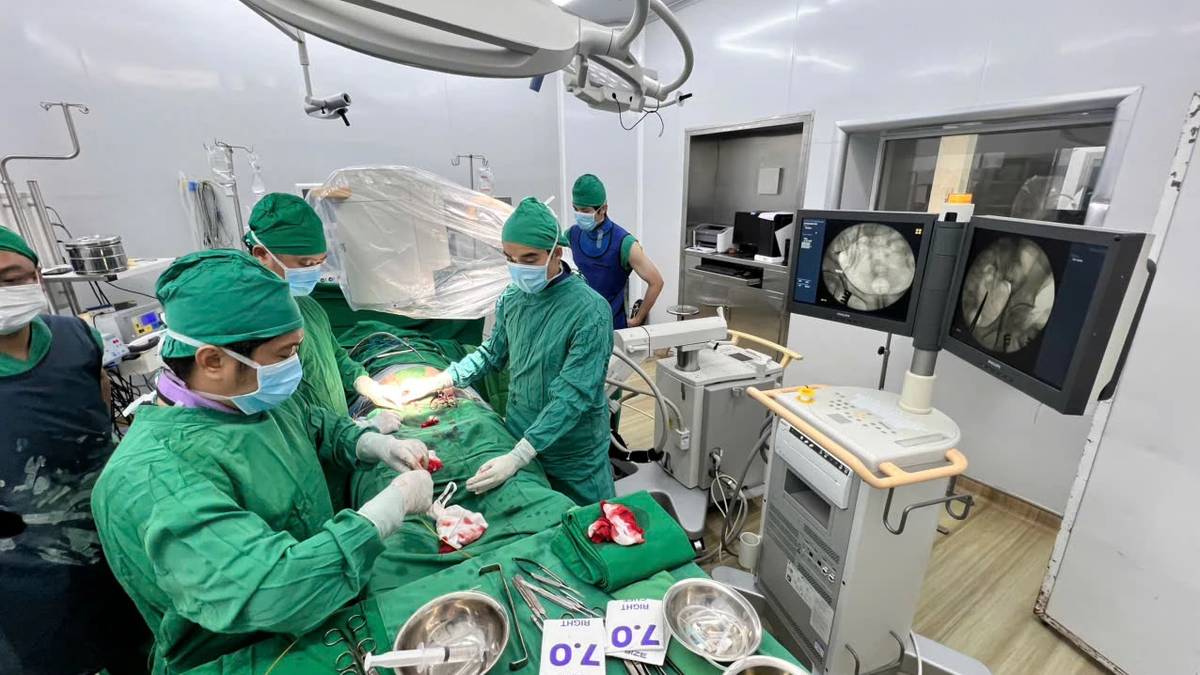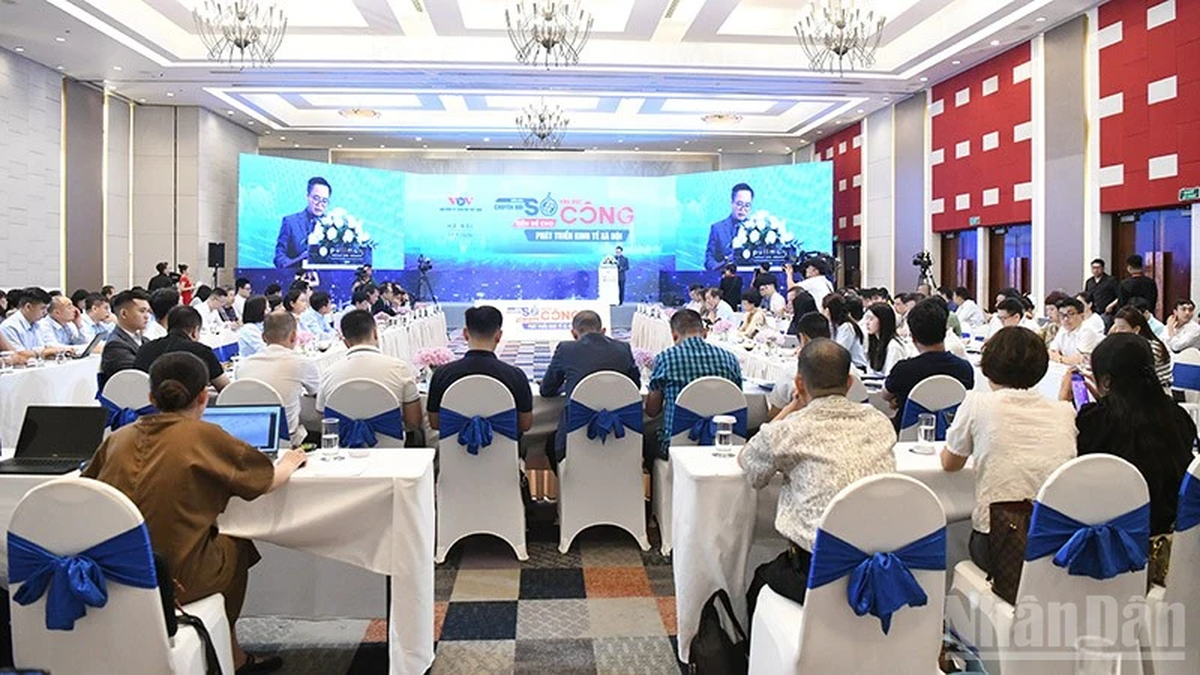ANTD.VN - The situation of buying and selling invoices and tax evasion is still a serious problem. The Tax Department is conducting a major review using artificial intelligence (AI) and Big Data, while closely coordinating with the police and it is likely that tax fraud businesses will soon be "exposed".
All kinds of invoice fraud tricks
Recently, the police have continuously dismantled many large-scale fake invoice trading rings. For example, in June 2023, Hung Yen Provincial Police initiated a case and prosecuted 4 defendants in a ring that operated more than 20 "ghost" enterprises that issued more than 5,500 invoices with a total value of up to 2,200 billion VND. The method of these subjects was to buy back companies from business owners who wanted to dissolve them to register documents to issue fake value-added tax (VAT) invoices to sell to other businesses to legalize input costs, causing losses to the State budget.
 |
With electronic invoices, fraud (if any) will be traced to the tax authorities. |
In early May 2023, the Economic Police Department, Ho Chi Minh City Police also discovered a large-scale invoice trading ring.
The method of the subjects was to use information on the ID cards and Citizen Identification Cards purchased at pawnshops to establish nearly 60 "ghost" companies in Ho Chi Minh City and Dong Nai . After that, these groups searched for customers online, contacted them to offer VAT invoices with false content at an agreed price of 1.5% - 2% of the invoice value (excluding tax). The investigation results showed that the subjects had issued more than 20,000 fake VAT invoices to nearly 4,000 different companies in 35 provinces and cities, with a value recorded on the invoices of about 4,000 billion VND.
In Thanh Hoa, 5 subjects were also arrested for setting up “ghost” companies, issuing fake invoices with a turnover of about 30 billion VND. These subjects worked as tax accountants for businesses, but then set up additional “ghost” companies that were not operating in business to contact companies that were operating, then self-adjusted, issued invoices back and forth between many companies, balanced and then self-issued invoices to buyers in need.
It can be seen that although the use of electronic invoices is expected to limit invoice fraud, in reality, this type of crime is still operating painfully in recent times. The General Department of Taxation said that many cases have been and are being investigated and prosecuted by the police such as in Phu Tho, Hai Phong, Quang Ninh, Ninh Binh, etc.
This shows that the methods of the subjects are extremely sophisticated, the scope of implementation is nationwide, the time from establishment to abandonment of business location or being discovered by authorities only takes place in a short time. Typical acts are: Issuing fake invoices, buying and selling invoices. Including cases of making fake invoices for profit; creating invoices in violation of regulations to legalize, reduce input costs to reduce taxes payable, declaring incorrectly, not enough; not issuing invoices for exported goods; commercial discount invoices are made into adjusted invoices...
Recently, through a case investigated and prosecuted by the Phu Tho Provincial Police, 524 enterprises were found to have risks regarding electronic invoices. The General Department of Taxation immediately issued a dispatch requesting the tax departments of the provinces and centrally-run cities to review the invoices issued by these 524 enterprises; at the same time, review and inspect enterprises using invoices from these units. The General Department of Taxation requested that if an enterprise was found to have used invoices from one of the 524 enterprises mentioned above, it must explain and clarify.
Regarding tax management, Deputy Prime Minister Le Minh Khai also directed the Ministry of Finance to manage and supervise the issuance and use of invoices strictly and in accordance with regulations, and to detect and strictly handle acts of illegal purchase and use of invoices to evade taxes and appropriate tax refunds from the State budget.
Not only are cases discovered, prosecuted, or subjects operating secretly, but currently the buying and selling of fake invoices is also advertised publicly on social networking sites, accounting and tax groups. Many subjects posting advertisements when buying invoices also fully support other related documents such as contracts, receipts, warehouse delivery notes, etc.
The cost of buying fake invoices depends on the total value of the invoice and the price is quite cheap. For example, the price of buying invoices under 5 million only costs about 60,000 - 150,000 VND/bill. For higher values, the cost is calculated as a percentage.
This rate depends not only on the invoice value but also on the operating time of the invoice-issuing business (long-standing businesses will have higher costs than newly established businesses).
 |
Corporate seals seized by police in an illegal invoice sale and purchase case |
Using artificial intelligence to “scan” “ghost” businesses
According to the police, one of the reasons leading to the widespread issuance of fake invoices and tax fraud is that regulations on business registration, tax declaration, invoice management, tax administration, business inspection, banking transactions... are not yet strict, with many shortcomings leading to exploitation by subjects.
Although invoice fraud still occurs with electronic invoices, the General Department of Taxation's leaders said that, unlike paper invoices, electronic invoices will remain traceable at the tax authority.
Currently, the tax authority is promoting comprehensive implementation, maximizing the application of information technology in tax refund settlement; deploying AI to analyze Big Data in the purchasing and selling chain of enterprises, thereby detecting signs of fraud in the declaration and payment of taxes by intermediary enterprises in the purchasing and selling chain; detecting unusual signs in the value of goods traded; detecting the circular purchasing and selling chain of enterprises...
“The tax authority has been strengthening the implementation of periodic and high-frequency checks based on the Big Data system to identify signs of violations, prevent acts of buying, selling, using fake invoices and documents; using illegal invoices and documents; tax refund fraud, tax evasion. The tax authority will strictly handle violations and intentional violations according to its authority; receive and resolve denunciations and reports of crimes, transfer and recommend prosecution of cases with signs of economic crimes and negative acts and coordinate with the police to handle them in accordance with legal regulations” - Ms. Le Thi Duyen Hai, Director of the Department of Tax Declaration and Accounting (General Department of Taxation) said.
Notably, the General Director of the General Department of Taxation has recently issued the Tax Inspection Procedure. This procedure aims to strengthen tax inspection work on the basis of applying risk management mechanisms, applying information technology to tax inspection to detect, prevent and promptly handle tax violations, and prevent tax losses.
According to the General Department of Taxation, with the issuance and synchronous implementation of risk management mechanisms, assessment and identification of taxpayers with signs of risk in invoice management and use, the electronic invoice database analysis system has supported the ability to automatically score and provide a list of taxpayers with high risks regarding invoices to carry out tax management work.
Source link





































































































Comment (0)